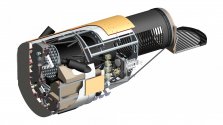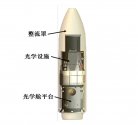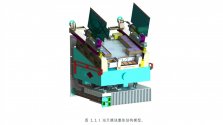Besides naturally easier to handel re-usability than Kerosene (air blown inside) and maybe cheaper to produce, other advantages are all quationable to non-existent.The big deal with Zhuque 2 is it's the first rocket powered by methane to reach orbit. It all comes down to being more "environmental friendly" and ease of production. What the actual savings in costs are I don't know. I would guess methane is cheaper. Other companies using kerosene is likely they don't have the expertise and just use what they can afford.
Some advantages to methane:
- Simpler And Cheaper To Produce
- Little To No Coking And Other Forms Of Residue Buildup
- Environmentally Friendly
- Higher Specific Impulse Than RP-1 (Kerosene)
- Can Be Produced On Other Celestial Bodies
- Smaller Fuel Tanks Required Compared To Hydrogen
- No Additional Compounds Needed To Keep Fuel Tanks Pressurized
- Allows Rocket Engines To Run At Higher Pressures
AFAIK, methane is better than kerosene:
- Methane engines can produce more specific impulse than kerosene. This means more delta-v for the mass of fuel and engine.
- Methane takes up much less volume than other fuels like hydrogen, so the tanks can be smaller and lighter. It can be chilled before launch, causing it to shrink even further.
- Methane is much cleaner burning than kerosene, eliminating problems with carbon deposits causing dangerous hot spots and blockages and greatly reducing the need for overhaul before reuse.
- Methane can be made anywhere in space that power and common raw materials are available—including the surface of Mars.
- Methane is plentiful and cheap in the form of natural gas (at least on Earth).
- The boiling point of oxygen and methane are close enough you can easily prevent one freezing the other with a little insulation. That’s not the case with hydrogen (which will freeze oxygen) or kerosene (which will be frozen by it). These problems can be addressed with other fuels, but at the cost of extra weight.
Specific impulse (by volume) is slightly better than Kerocene but specific impulse (by mass) is much LOWER, meaning worse performance than Kerocene as first stage. In high altitude, it is far worse than LOX/LH2, only slightly better than Kerocene.
Methane is the WORST green house gas in big volume. At launch, it will be leaked on purpose to relieve the tank pressure caused by heat from the sun. I don't think it is any batter than the pollutents from Kerocene.
Producing Methane on other planet will remain a science fiction for 100 years and more if EVER. It is pointless to refer it as an advantage.
Bigger fuel tank than Kerocene and SRB. We should not cherry-pick.
Higher combustion chamber pressure is NOT the advantage of Methane fuel, BUT "Full Flow Cycle" which can be used by LOX/LH2 engine as well.
These subjects have been repeatedly discussed in the thread, I would appreciate that we don't go back to the basics.









